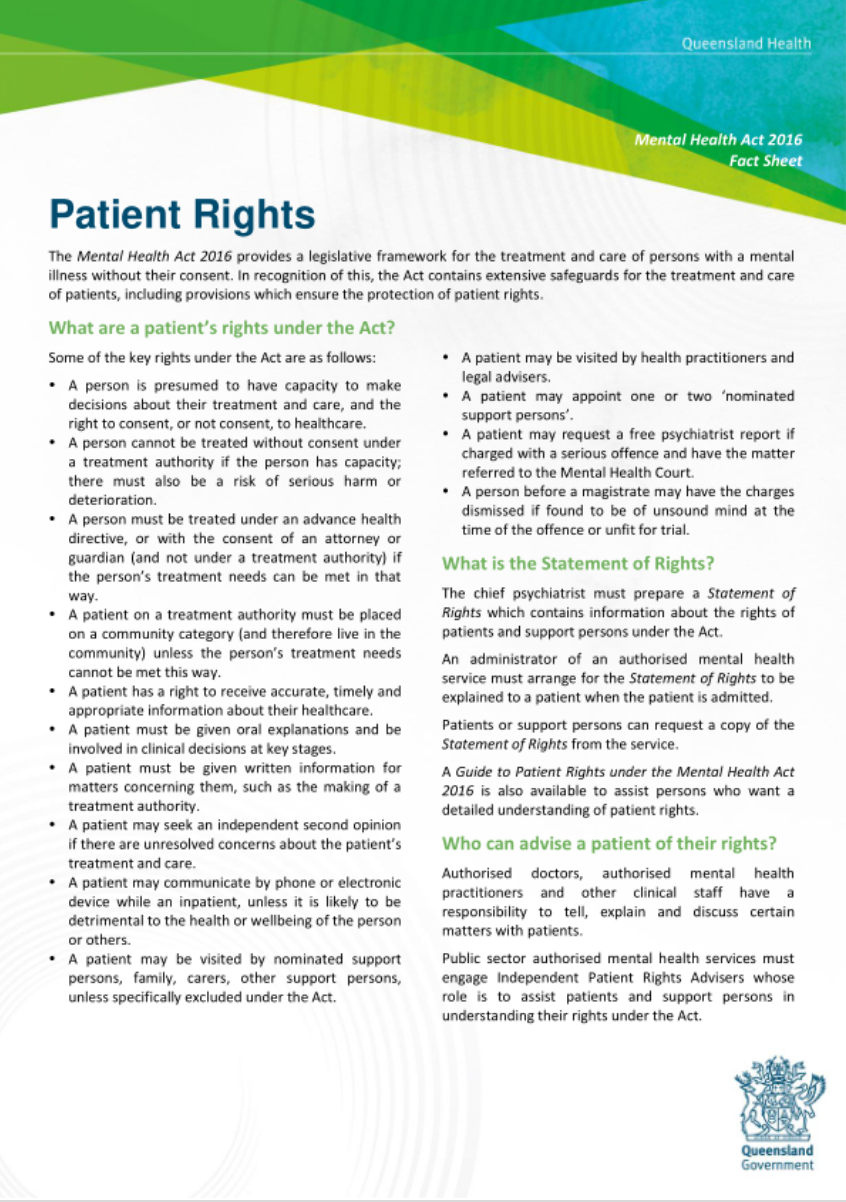Independent Patient Rights Advisers(IPRAs)
Independent Patient Rights Advisers (IPRAs) help patients, their families, carers and other support people to know more about their rights under the Act. Understanding these can help patients to be more involved in decision making about their treatment and care.IPRAs liaise between patients, family, carers, support people and clinical teams.
Rights Advisers recognise the lived experience and insights of people with mental health issues and their families.
How do Independent Patient Rights Advisers Operate?
IPRAs generally will not share the person’s information with health practitioners unless:- The patient provides consent
- there is a safety concern, or
- the information disclosure is necessary to fully investigate a complaint.
- Helping patients and support people to communicate to health practitioners the patient’s views, wishes and preferences about treatment and care
- Advising patients and their support people of their rights at Mental Health Review Tribunal hearings, and, if requested, help the consumer engage a representative
- Identifying whether patients have a personal guardian or attorney and work cooperatively with them to further the patient’s interests, and
- Advising patients of the benefits of an Advance Health Directive for Mental Health or an Enduring Power of Attorney for a personal matter.
The Mental Health Act 2016 provides a legislative framework for the treatment and care of people with mental illness. As part of the Act, Independent Patient Rights Adviser (IPRA) roles have been created across Queensland to assist patients receiving treatment and care provided by Queensland Health mental health services.
IPRA Factsheet
Role of IPRAs FactsheetIPRA Resources
For videos and fact sheets about:- Patient rights
- IPRAs
- Support persons
- Nominated support persons
- Receiving treatment
- Advance care planning








